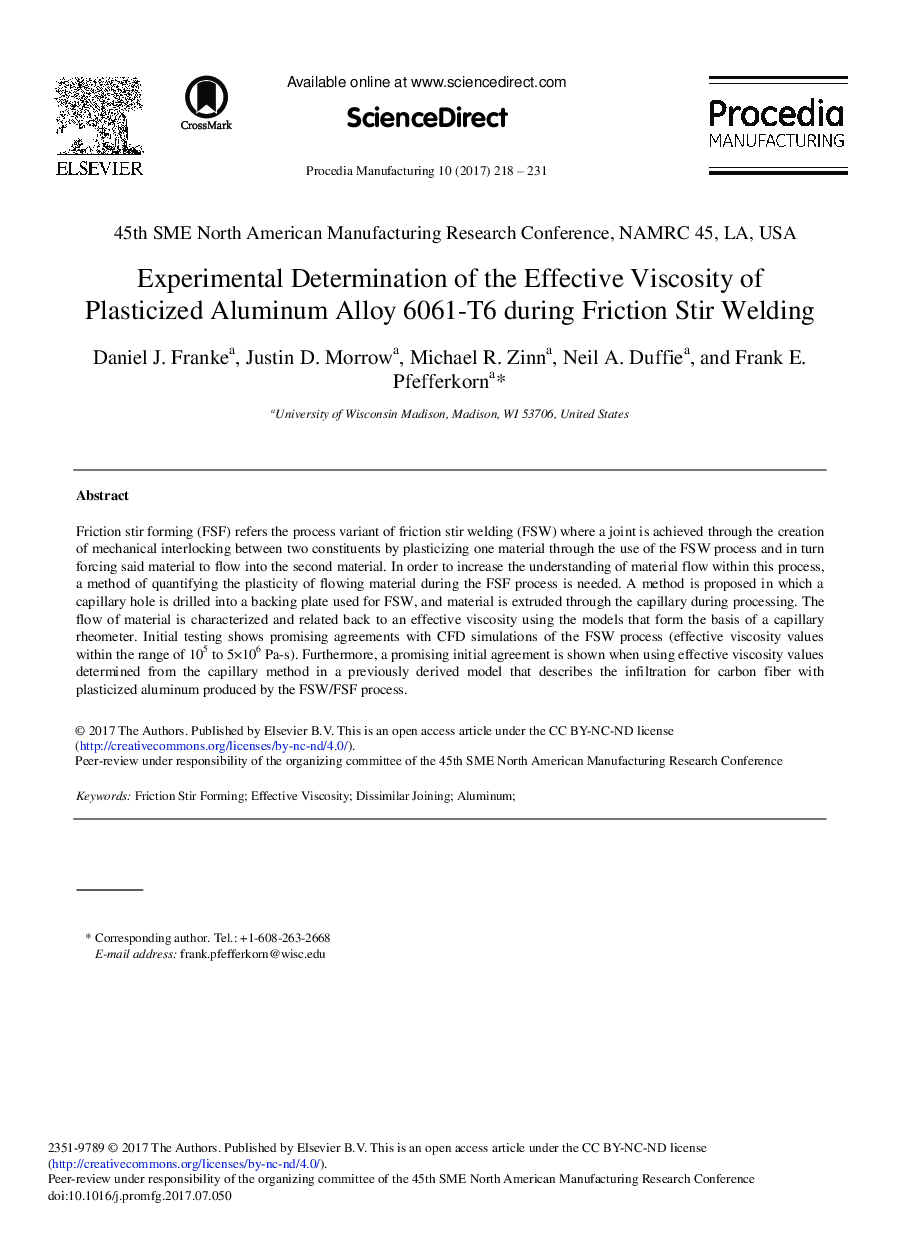| Article ID | Journal | Published Year | Pages | File Type |
|---|---|---|---|---|
| 5128770 | Procedia Manufacturing | 2017 | 14 Pages |
Friction stir forming (FSF) refers the process variant of friction stir welding (FSW) where a joint is achieved through the creation of mechanical interlocking between two constituents by plasticizing one material through the use of the FSW process and in turn forcing said material to flow into the second material. In order to increase the understanding of material flow within this process, a method of quantifying the plasticity of flowing material during the FSF process is needed. A method is proposed in which a capillary hole is drilled into a backing plate used for FSW, and material is extruded through the capillary during processing. The flow of material is characterized and related back to an effective viscosity using the models that form the basis of a capillary rheometer. Initial testing shows promising agreements with CFD simulations of the FSW process (effective viscosity values within the range of 105 to 5Ã106 Pa-s). Furthermore, a promising initial agreement is shown when using effective viscosity values determined from the capillary method in a previously derived model that describes the infiltration for carbon fiber with plasticized aluminum produced by the FSW/FSF process.
